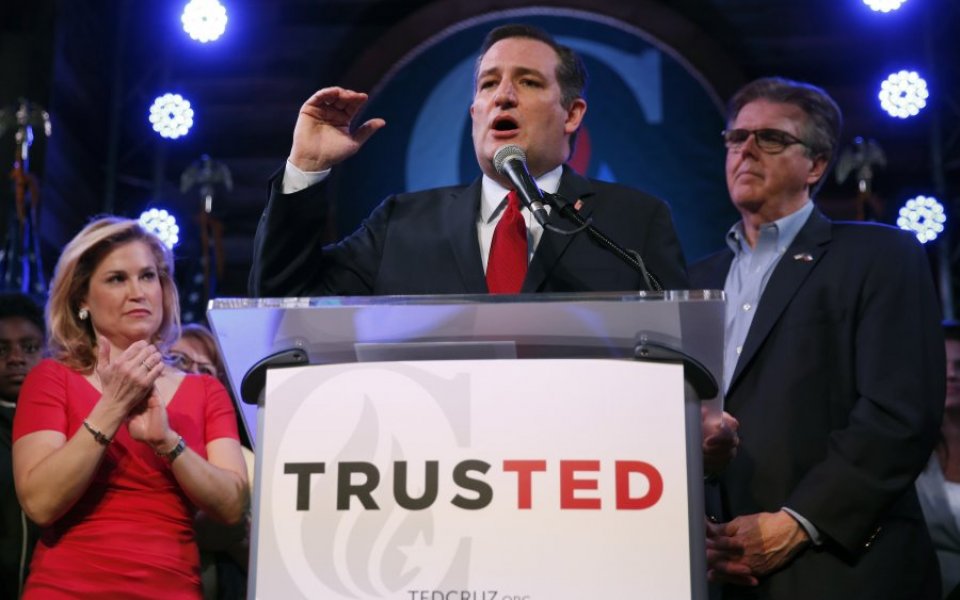US Presidential Election 2016: As Donald Trump sweeps up most states, who is Super Tuesday’s big loser? The Republican party

Super Tuesday was the night when the Republican party, and its chances of regaining the White House in November, imploded.
The headlines this morning will be satisfying to both Hillary Clinton and Donald Trump, although neither sealed the nomination. But the GOP's establishment will be close to desperation, bereft of any alternative – given the effective demise of Marco Rubio, the US senator from Florida – to take the initiative from Trump.
On the Democratic side, senator Bernie Sanders did enough to keep the race alive. He broke out beyond his base in the northeast, winning the states of Colorado, Minnesota, and Oklahoma as well as his home state of Vermont. But Clinton won the biggest contests, such as Texas and Virginia, by big margins and also narrowly triumphed in Sanders' backyard in Massachusetts.
Read more: Super Tuesday results: Trump and Clinton move closer to the White House
The US media will be happy with a storyline where Sanders — supported by a surge in fundraising last month — takes the contest to Clinton through March, where the battle will probably end on the fields of Michigan, Florida, and Ohio.
But the main drama will be Republican. The lead actor will continue to be Trump. He won throughout the South, including the vital contest in Virginia, and beyond in states such as Massachusetts.
Ted Cruz, the right-wing senator from Texas, will not lead the stage. With victories in his home state of Texas and neighbouring Oklahoma, he will find the justification to keep his campaign alive, even though he is not showing that he can challenge Trump outside the Southwest.
Meanwhile, Rubio is the tragic support, probably on his way to electoral death after failure to break through anywhere apart from the Minnesota caucuses. To dent Trump's front-runner status, he needed to show that he could win a state such as Virginia or Georgia, but he fell away in the final week of campaigning.
The Republican political and business establishment believe that Trump, with his divisive style and high unpopularity ratings, cannot win a one-on-one contest with Clinton. They are just as sceptical about Cruz, with his relatively narrow base from the right wing, the Tea Party, and evangelicals.
Yet this morning the GOP appears to be left with no options. Ohio Governor John Kasich, who quietly finished second to Trump in Vermont, will hope to make his case in Michigan on 8 March and his home state a week later; however, he has left any surge too late to move to the front. Rubio might fall on his sword after defeat in Florida on 15 March.
Read more: Trump Vs. Clinton looks like a done deal, says bookmaker
The last refuge for the GOP would be a scenario where no one takes a majority of delegates before the National Convention in July. For the first time in 64 years, the nominee would be decided by trading on the floor, rather than through the primaries and caucuses.
But even that scenario appears remote. In the big states from 15 March – Florida, Ohio, Illinois, Missouri, New York, California – the winner takes all or most of the delegates. To avoid a Trump coronation, Kasich has to triumph in the Midwest, Rubio has to resurrect his campaign, and Cruz has to become more than a regional candidate.
So the GOP's nightmare becomes reality. They are saddled with a candidate who, claiming no knowledge about the Ku Klux Klan, is unlikely to gain African-American votes. A candidate who, building a wall with Mexico higher and higher, has likely alienated Hispanic-Americans. A candidate who, with his derogatory statements about women, risks the support of 50 per cent of the US population.
This Republican nomination might be won from the angry margins, but Presidential contests are won from the centre. The GOP is left this morning with a narcissist, bullying frontrunner and no idea how to get there.